

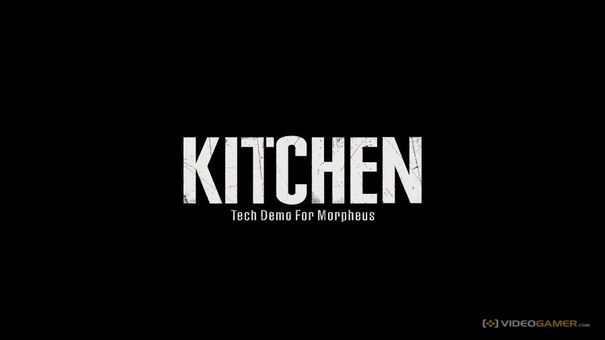

PT is dead, but Kitchen – Capcom's VR horror for Sony's Morpheus – lives. Well, not quite: at the moment it exists in a kind of half-life, heard about but strictly never seen. Capcom's decision to not release a single screen has facilitated a cute bit of schoolyard mythologising, while at the same time being a great marketing tactic.
Like PT and streaming, Kitchen takes established genre norms – lank-haired ghost-women, grotty environments, people being idiots – and bolts it onto new, or perhaps just newly workable, tech. And, again like Konami's now-pulled title, Kitchen is a demonstration of how that new hardware brings even the most tired of boogeymen back to life.
With the goggles slipped on and headphones cutting out most background noise (the Capcom staff, in a fit of theatricality, also gave me a safe word, which sadly wasn't 'Resi 2 remake') Kitchen begins. Your in-game self is tied to a chair in an appropriately J-horror kitchen: decrepit, brown, ramshackle – the sort of place you'd expect to find James Sunderland reflecting on his poor life choices. There's a guy on the floor, an exit to your right, and that's it. Player movement is limited to looking around the room and using your arms, bound together by rope, to flail about. It's Saw by way of Silent Hill.
Soon the person in front of you is up, attempting to cut you loose, primarily by waving a massive knife in your face. He's understandably spooked by the whole thing, but before he can free you from your bounds he's dragged away, his now-bodiless head launched into the room from an alcove not long after. (I tried to kick it. The game wouldn't let me. 6/10.)
Soon, the player is menaced by his killer, a spirit of some kind who looks like she enjoys a good bit of torment. She puts her head as close to yours as possible, grinning maniacally and generally being all manner of unpleasant. Imagine the girl from The Ring was set on fire and put out with a spade and you're there. The ordeal continues with her stabbing you in the leg, and finishes with her darting behind the chair, putting her grim hands over your face and (presumably) killing you.
Content-wise, then, it's fairly conventional. But the VR experience makes even the most tired cliches seem frightening. Some of the effects are a bit obviously showy – the knife hovering around your face is the sort of trick you'd see in a 50s 3D movie (or Friday the 13th Part 3, for that matter) – but going literally face-to-face with her is disconcerting. Natural head movement accounts for a lot of this, as you'll probably get closer or further to her depending on how brave you're feeling, or how fast your heart is beating. Her grin when looking right at you is the highlight, if that's the right word, of the whole package.
Another interesting element of Kitchen is that as you're the one directing the camera, but receiving the image at the same time by looking in different directions, the brain starts to play small tricks on the player. I don't remember exactly how the woman arrived, only that she was there. It removes the inherent staginess of 2D: think of it like that scene towards the end of Alien, where Ripley winces as she slowly moves her head to get a glimpse of the hallway ahead, terrified it will be there should she move it a little more, and you'll know what I mean.
The use of 3D audio is also superb: you'll hear breathing behind you, and although you can rotate around to look the blackness of the room is all you'll see. It's eerie, effective, and as obvious a demonstration of the power of sound design you'll see for some time.
It's an experience that only VR can give. It also highlights the limitations, as well as the strengths, of the hardware. There's no denying the efficacy of the demo, and it is a leap beyond 3D in that your head movement heightens the drama, rather than destroying it. Barring strapping your head to a television, there's no way for any other medium to get you this 'in the action' as Kitchen and Morpheus, and its capacity for taking tired tropes and making them fresh is remarkable.
But it's also not as scary as PT: the lack of player locomotion means that your agency is greatly reduced, and as such the intensity is lowered. One of the fascinating elements of watching people play Konami's horror short was that they were afraid not just of the woman stalking the building, but also that their own decision-making would cause her to appear. They were frozen to the spot, as you probably would be in a similar scenario. Kitchen is a great ride, and the fact that it seems to last far longer than the billed three minutes is testament to its power. But it's still just a ride.
Not that it was ever meant to be anything more than that. Produced by Masachika Kawata and Jun Takeuchi, who were responsible for Resident Evil 5, it's a gentle prod at just what VR can do, how it can take established genres and reinvigorate them. We're used to seeing spacefaring titles do well in VR – Elite Dangerous and EVE Valkyrie the two main examples – but horror games are less well mined. With Resi stagnating, Silent Hill dead, and Project Zero off the radar, Kitchen is an intriguing first step.
Whether it lead to anything substantial is another matter entirely. Kitchen has its flaws – the woman is revealed too early, for me at least, and it didn't play around enough with the player's vision and where they were looking. It ran at 1080/60 (using Morpheus' hardware to increase it to 120fps), but still had the visible 'screen door' effect that persists when wearing the headset. Despite this, it works – it's scary, immediate, and can be 'played' by anyone.
But just getting it running at all, by setting up Morpheus to use with it, took three times as long as the game itself, with two staff members setting up inputs and outputs and all manner of other messing around. You'd expect this to be fixed at retail, but in a microcosm the whole experience highlighted just how far the tech has to go, in terms of both hardware and software. I'd love the new Resident Evil to take cues from Kitchen, but I also wouldn't be surprised if it faded into a legend played by about 20 games journalists.
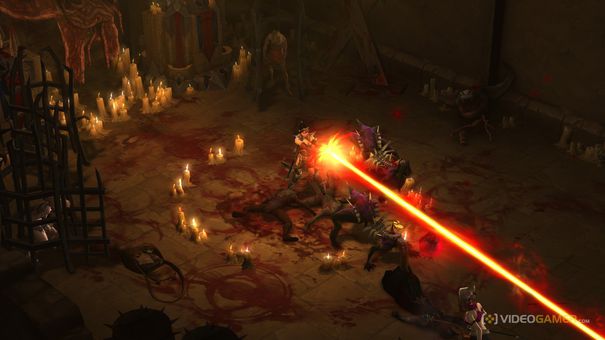



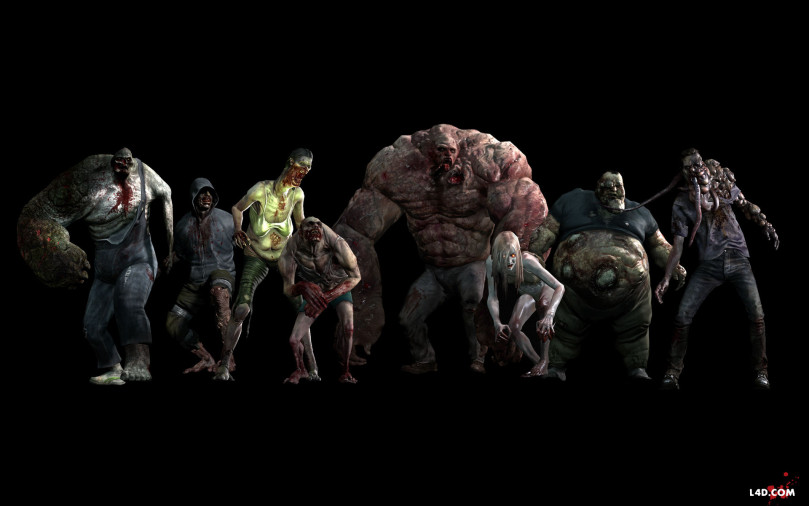 Left 4 Dead 2: Smoker Guide
Left 4 Dead 2: Smoker Guide Call Of Duty Modern Warfare 3 Goalpost Intel Guide
Call Of Duty Modern Warfare 3 Goalpost Intel Guide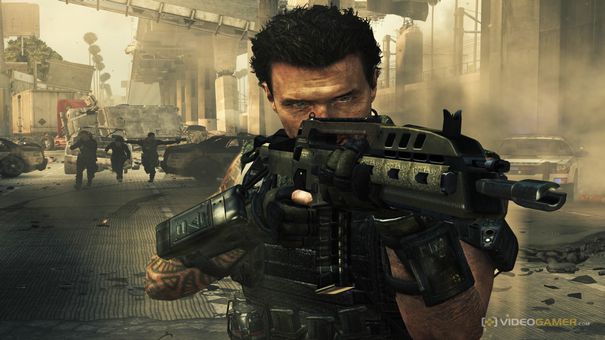 What does your younger brother think of Black Ops 2?
What does your younger brother think of Black Ops 2?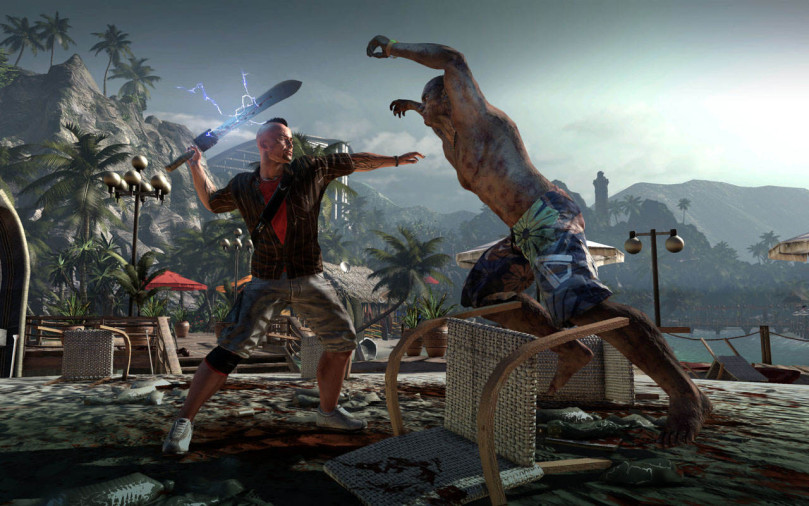 Dead Island Prologue: Chaos Overture Quest Guide
Dead Island Prologue: Chaos Overture Quest Guide Fire Emblem: Awakening Guide – Paralogue 3: A Strangled Peace Guide - GamersHeroes
Fire Emblem: Awakening Guide – Paralogue 3: A Strangled Peace Guide - GamersHeroes